by Collin Vickers
Frank Cicela, father and aspiring entrepreneur, has moved with his family from a $200,000 house in the suburbs to a $20,000 tiny home in rural Missouri so that he can start a revolution!
Did you know that it only took 66 years for us to progress from the first flight at Kitty Hawk to landing on the moon, and that the entirety of the Wright Flyer’s first airborne journey could have fit inside the external fuel tank of the space shuttle? What a testament to our creative power!
I’ve been thinking a lot about this creative power since I chatted with my friend Frank Cicela, (pronounced Cheech-ah-la), who is the owner of a special non-profit business: Deep Green Machine. I asked Frank about how transitioning into the tiny house lifestyle has impacted him and his family. His life story resonated with me powerfully, and his mission inspires me.
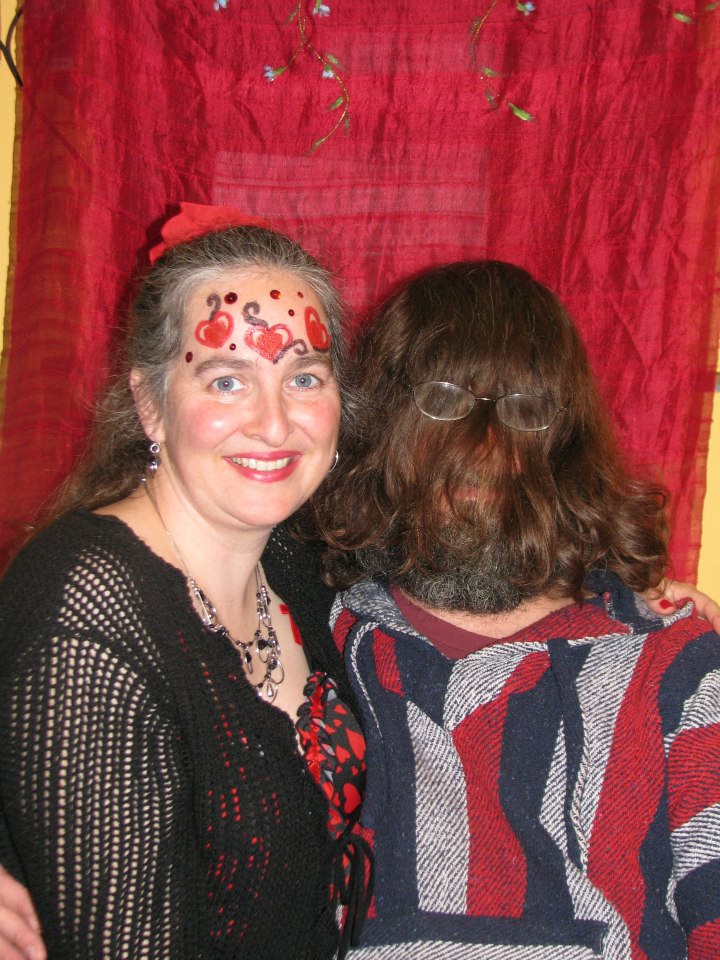
In the late 2000s, like millions of others, Frank and his partner Teresa were robbed of the equity in their home by the subprime lending scam. Frank was robbed again when his employer unceremoniously closed its doors due to further economic collapse. Frank realized that the narrative we have been sold in our country, (that we can be happy if we sign on the dotted line for a house we only need to store the stuff we never use because we spend all day commuting in a car that we only bought so we can get to the job,) is a carnival game rigged against us. The current expression of capitalism in our country favors the anonymous puppeteers who pull the strings of corrupt public policymakers, so that they can profit off of global commerce at the expense of those who do the work.
Frank and Teresa seized control of their lives by re-committing to living without debt. Frank found a new job that afforded him the flexibility he needed to work from home, while striving to live out the dreams that had lain dormant within him since his youth. The family lived on 60% of his income and saved the rest. Teresa returned to school for midwifery and focused on raising their daughters, Elea and Marianna, in homeschool. They taught themselves the timeless crafts of gardening and small animal husbandry. Frank dedicated his time to studying permaculture principles, including diversity, resilience and stacking functions. Now he is in pursuit of creating a way to earn an income that aligns with his values, while giving back to his community and helping to elevate others by removing barriers to business ownership.
“I came across a Venn Diagram,” Frank told me as we sat together in the crisp spring air at Dancing Rabbit Eco-village on Adirondack style chairs made from old shipping pallets. “It consisted of three circles asking these key questions: what do I love, what am I good at, and what can I monetize?” From this thought exercise, Deep Green Machine was born. “I remembered my education growing up, when I had the opportunity to learn vocational skills like carpentry, machining, welding and electrical wiring. I don’t see many adolescents getting the same opportunities in public school these days. I wanted to create a place where people could learn some of what I did.”
Frank’s modus operandi is reminiscent to me of Masanobu Fukuoka’s famous opening to his book, ‘One Straw Revolution’: “I believe that a revolution can begin from this one strand of straw. Seen at a glance, this rice straw may appear light and insignificant. Hardly anyone would believe that it could start a revolution, but I have come to realize the weight and power of this straw. For me, this revolution is very real.”
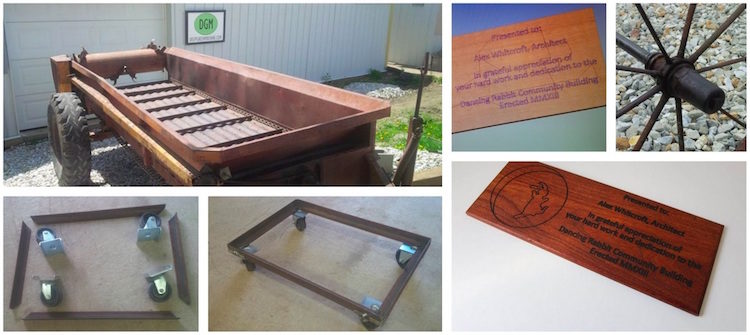
“Among other things, DGM is a business-incubator,” Frank went on to say as his face lit up with a smile,” where people can bring ideas and test them out without having to risk everything, or give up because they don’t have access to the tools and knowledge they need to get started. I have a tool library and a well outfitted workshop that people can rent on a monthly basis. With DGM, I take a similar approach to a YMCA, where people can pay to use a weight room, basketball court, swimming pool, etc. At DGM, people can pay a modest fee and have access to a table saw, welding tools, plasma cutters and computer equipment. If it can be drawn on paper, I can help make it a reality in wood, metal or plastic. There is studio space for digital artists to work in, as well.
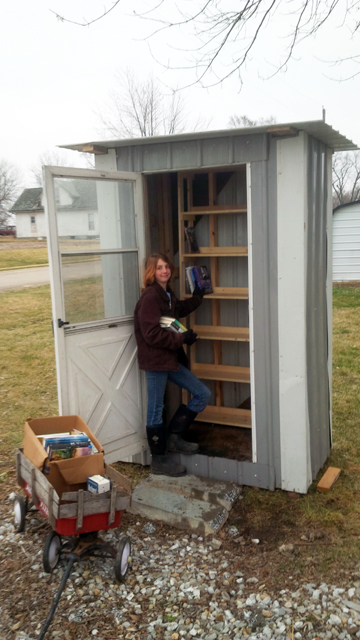
There is a super-sized free book library where anyone can come take a book and leave a book. (You can read more about this style of library at LittleFreeLibrary.org.) I want the shop to become a place where different people can bring their skills to the table and work together toward a common goal. I want to help people help each other by swapping labor and expertise, while sharing resources.”
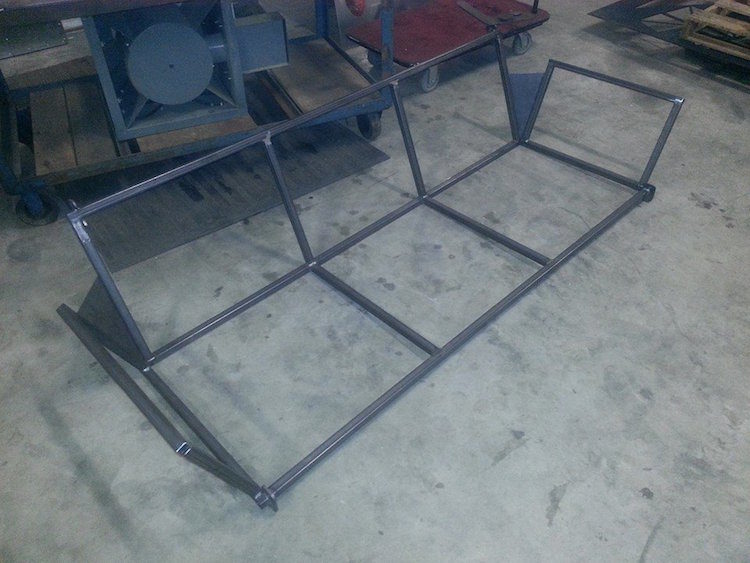
What does it take for an idea to transition out of the mind of one person to become a movement that inspires millions? I think Frank and his Deep Green Machine is a good case study in the search for the answer to this question. If the first step to putting people on the moon was a 59-second puddle-jump on a remote beach in North Carolina, is it too much to expect of one tiny business in the middle of nowhere to inspire a movement in our nation that could bring us out of recession and into harmony with nature and each other? The tiny house movement is poised to do many great things, and this is one of them.
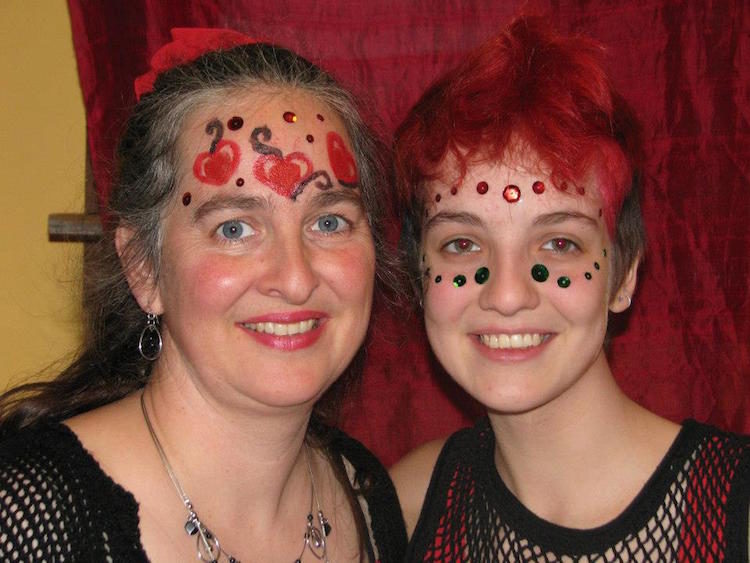
Frank visibly swelled with emotion as he told me about how the choices he and Teresa have made have impacted their daughters. ”I shudder to think how my girls would have fared in public school. Our eldest, Elea, was so eager for new things that she had often grown bored and disenchanted with learning – she thrived in home schooling, where she could move at her own pace. Our youngest, Marianna, sometimes needs special attention, and would have floundered in a system that can’t provide the extra attention she needs. With homeschooling, she gets one-on-one student/teacher attention.”
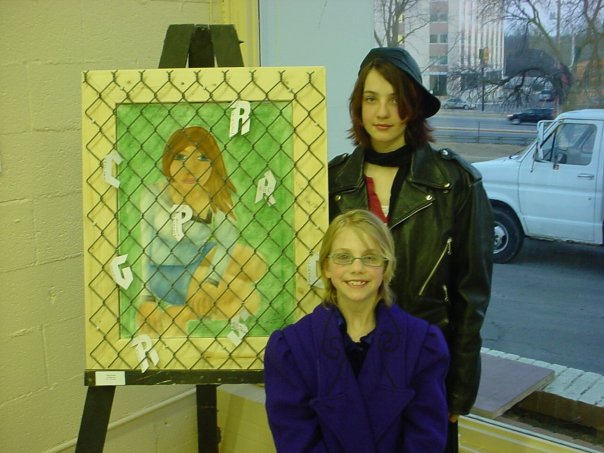
Moving to small town America is not without its price, and anyone considering leaving the city for the homesteader lifestyle in the tiny house of their dreams should beware. “Shortly after we bought our tiny house we were confronted with the meanness and hostility that small town people, who have spent their whole lives together, can exhibit to outsiders. We are the recipients of untrue gossip. Our personal property has been vandalized. I am saddened, not angry. I will continue to radiate care and concern into the community, and I am glad for opportunities to share with my neighbors. Overall, the people here are good and decent – some are sweet and wonderful people, who would do anything for us if it was in their power, and we would do likewise. There are angels and devils wherever a person chooses to live.”
Elea Cicela is grown now and reflects much of her dad’s entrepreneurial spirit. She has opted out of the fetters of conventional nine-to-five employment and is going to school to learn the secrets of cosmetology, with plans to develop her own clientele. She also crafts exquisite clay jewelry – you can check out her inimitable style at Indigo Mantis Arts.
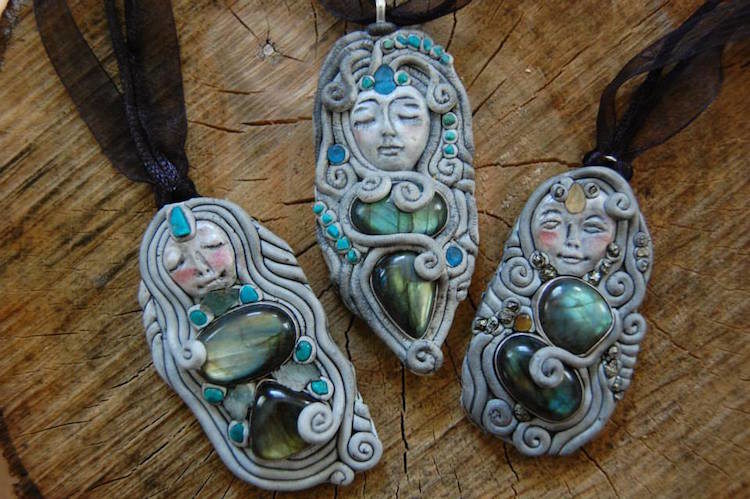
Frank welcomes serious inquiries into getting a new idea off the ground, producing a prototype or manufacturing items for sale – he is a master of tasks that require combining disparate materials with finesse. Frank would also love to mentor others who hope to offer similar resources to their own communities, as well as network with anyone who has valuable experience to share in furthering the work of Deep Green Machine. If you want to join Frank’s business-incubator revolution, you can get in touch with him using the contact form on his website, via Facebook, or directly at frank(at)deepgreenmachine.com.
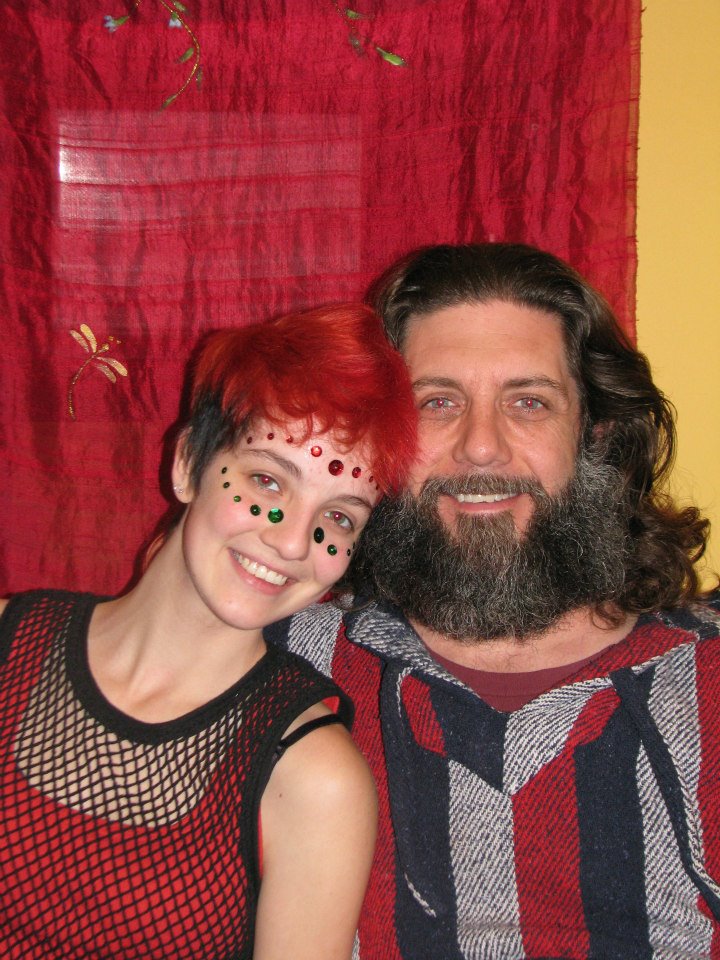
This is great! I wish there were something like it in my community. It would be great, too, if it included a “repair shop” where people could learn to fix the things they already have, under the guidance of a “handyman” or just handy and experienced people. I think there are a lot of us who don’t want the things we’ve actually chosen to keep, to be disposable, but don’t have the knowledge or tools to repair them.
I agree. I have had to let go of all sorts of very serviceable things just because I don’t know how to fix them and don’t have access to anyone who does. This is a great idea as long as all of the pieces fit together.
Hey Frank, you and your family are on the right road. I wish you all the best and sweet success.
Moving from a mainstream large city to rural MO is rough. My wife and me made the same exact choice some 27 years ago after leaving Phoenix for our relocation to pure country central MO address with a population of around 156 people. In smaller MO areas with tightly knit clans, outsiders with broader views on life are commonly perceived as a threat hence creating friendships and a sense of belonging is a long row to sow.
You choice to live with less had to have come with the same economic shock we experienced hence we commend you for your effort – even when it isn’t always well received.
While I commend your choice to home school young children, I’d also ask you carefully evaluate just how much more your local smaller schools offer as your kids grow older. We’ve seen our area grow considerably as more parents move out here simply for our schools that embraces the three R’s more than golf or lacrosse. It’s also important for kids to learn life isn’t always kind. Public school is where kids grow thicker skin while slowly integrating themselves in your newfound community.
Do we miss our old era of great dining, museums, and chamber music in the park – yes, but the new contentment we never knew existed now that deer, woodchucks, & bunnies are our closest neighbor brings pure delight.
Your income replacement idea such as offering a YMCA experience where people can work on “real” projects that reuses old materials while attaining new skills is brilliant! So is your common sense approach to never wanting the banks to own you again.
You’re a couple who beats your drum to a different rhythm thus there’s more growing pains still ahead as you fold your lives into your new community. With your people skills, my bet is you’re going to find it a whole lot easier than my wife and me did;)
Keep up the good work. My wife, Linda, and I are planning to build (or buy at the right price) a tiny house. I like your dream…why not populate Northern Missouri with tiny houses? There certainly is interest, and it’s growing by the day.
Hope to come visit you one day.
Richard
Can’t wait to browse the jewelry. It’s beautiful and unique. I love it!
I like your story and idea’s! We are presently building our own small home! I never wanted to own so we were spared the horrible things that displaced many families. Most of all were all the pets that had to be left behind because of renting.. SAD? Thank You for sharing! ~M~ ?